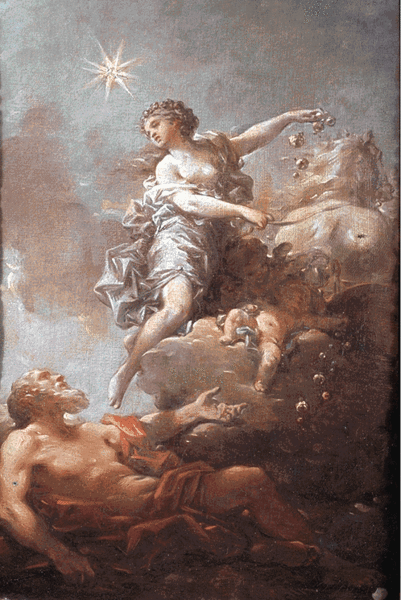TITHONUS IN GREEK MYTHOLOGY
Tithonus in Greek Mythology
Tithonus was a prince of Troy in Greek mythology. Tithonus was a son of King Laomedon and a lover of the goddess Eos.
Tithonus Son of LaomedonTithonus was born in Troy, the eldest son of King Laomedon, although, his mother is variously named as Strymo, daughter of Scamander, Leucippe and Placia.
Tithonus’ siblings thus included Lampus, Clytius, Hesione and Priam. Ancient sources tell of Tithonus founding the city of Susa. |
|
Eos Carries off Tithonus
Tithonus was one of the most handsome of all mortals, and his beauty attracted the attention of the goddess Eos, Dawn. Eos carried Tithonus off, and took him to Aethiopia.
Living as lovers, Eos and Tithonus would became parents to two sons, Emathion, an Aethiopian king killed by Heracles, and Memnon, a Trojan defender killed by Achilles.
Living as lovers, Eos and Tithonus would became parents to two sons, Emathion, an Aethiopian king killed by Heracles, and Memnon, a Trojan defender killed by Achilles.
The Transformations of Tithonus
|
Tithonus though was mortal, and so in order to be with him forever, Eos asked Zeus to make him immortal. Eos’ wish was granted by the supreme god, but Eos had forgotten to ask for eternal youth at the same time.
Thus, whilst Tithonus could not die, he could age, and as the years passed, so Tithonus grew older and older, and more and more infirm. Eventually, Tithonus could but complain and babble incoherently, with no strength in his limbs to even move. Unable to look after himself, Tithonus asked that he should die, but it was not in the power of Eos to take away his immortality. Some say that Tithonus was then abandoned in a room, but others tell of Eos transformed him into a cicada, whose endless chatter and incoherent babble is still heard today. |
|
|
Colin Quartermain - Tithonus - 1st March 2020
